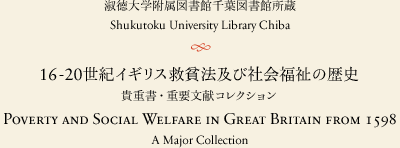 |
 |
 |
 |
1799
MALTHUS ON WHITBREAD'S BILL |
089. MALTHUS, Thomas Robert. A letter to Samuel Whitbread, Esq. M.P. on
his proposed bill for the amendment of the Poor Laws. London: Printed for J.
Johnson. 1807. [2],40p. Title page laid and cut down. Rebound in cloth. From the
Library of the Department of Education and Science with the old round stamp of the
Board of Education on the title page.
GOLDSMITHS 19476. THE FIRST EDITION.
Though the Poor Laws of course formed an important theme in Malthus's Essay on
Population; the present pamphlet was his only specific contribution to the discussion
of the subject. Whitbread's speech introducing his Bill to Parliament took Malthus as
his starting point. He disagreed with him and further hurt Malthus's feelings by
repeating the suggestion that Malthusian logic on the treatment of the poor showed
"hardness of heart".
In this answer Malthus again lays at least some of the blame for the rapid increase of
the dependant poor on the operation of the Poor Laws. The increase itself was "so
truly alarming, as in some degree to threaten the extinction of all honourable feeling
and spirit among the lower ranks of society, and to degrade and depress the condition
of a very large and most important part of the community." He further points out that
compulsory provision for the poor was almost peculiar to England and that there were
many parts of the continent without such provision where the condition of the lower
classes was much superior. Quoting Sir Frederick Morton Eden in his "..able and
laborious Enquiry into the state of the Poor..", Malthus questions whether the Poor
have any natural right to support. Stung by the suggestion of lack of compassion,
Malthus reiterates his view that all have a duty of charity to the poor and makes it
clear that the costs of the poor laws had never been the main reason why he opposed
them. He now accepts that total abolition of the Boor laws must be put out of the
question but does not retreat from his position of opposition to the principle of
compulsory support.
Next he proceeds to a discussion of how the Poor Laws could be improved. In
particular Malthus did not like Whitbread's suggestion that the parishes be empowered
to build cottages for the poor. If accommodation were provided this would have the
effect of encouraging the increase of population amongst the poor. Simply put, his
objection to the poor laws had always been that by stimulating an increase in the
numbers of the poor they cheapened the price of labour and in the long run made
matters worse. The provision of cottages and the resulting increase in the supply of
labour would have a disastrous effect on the wages and conditions of independent
labourers. His main concern was that the class of independent labourer be protected
against the pauperisation which he saw as one of the inevitable effects of the Poor
Laws carelessly applied. The letter concludes with general approval for Whitbread's
other proposals for the reform of the Poor Laws and offers particular support for his
ideas of increasing educational provision.
|
 |
|
 |
 |
 |
 |
|



